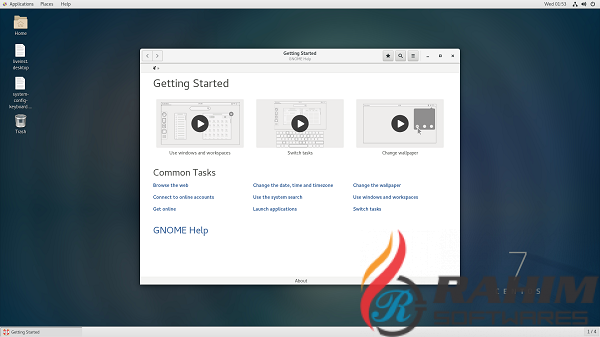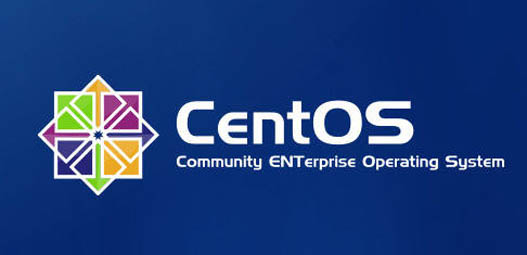| ID | Project | Category | View Status | Date Submitted | Last Update |
|---|---|---|---|---|---|
| 0006884 | CentOS-6 | -OTHER | public | 2014-01-07 13:32 | 2014-05-20 11:43 |
| Reporter | IDMS-andreas.schiermeier | ||||
| Priority | normal | Severity | minor | Reproducibility | always |
| Status | assigned | Resolution | open | ||
| Platform | IBM x3650 M4 | OS | CentOS | OS Version | 6.5 |
| Product Version | 6.5 | ||||
| Target Version | Fixed in Version | ||||
| Summary | 0006884: UEFI boot of CentOS-6.5-x86_64-minimal.iso (& CentOS-6.5-x86_64-bin-DVD1.iso) doesn't work | ||||
| Description | Booting an IBM x3650 M4 server using its IMM (Integrated Management Module) Virtual Media, loaded with CentOS-6.5-x86_64-minimal.iso (or CentOS-6.5-x86_64-bin-DVD1.iso) in UEFI mode fails. Instead of starting Anacoda, a grub prompt ('grub>') shows up. Entering 'kernel /images/pxeboot/vmlinuz' at the prompt leads to the error '18 : Selected cylinder exceeds maximum supported by BIOS'. | ||||
| Steps To Reproduce | -Load & connect IMM Virtual Media with CentOS-6.5-x86_64-minimal.iso -Configure Server Firmware to boot using UEFI (System Settings, Legacy Support, BBS Boot: Disable). -Boot from (virtual) CD/DVD-drive I'm not able to try a physical disk & drive. | ||||
| Additional Information | -UEFI boot from IMM Virtual Media basically works (tried with grml64-full_2013.09.iso and CentOS-6.4-x86_64-minimal.iso). -A re-created image (centos65.iso) using… mkdir CentOS-6.5-x86_64-minimal.iso.d mount -oloop CentOS-6.5-x86_64-minimal.iso CentOS-6.5-x86_64-minimal.iso.d cd CentOS-6.5-x86_64-minimal.iso.d xorriso -as mkisofs -U -A centos65 -V centos65 -volset centos65 -J -joliet-long -r -v -T -x ./lost+found -o ../centos65.iso -b isolinux/isolinux.bin -c isolinux/boot.cat -no-emul-boot -boot-load-size 4 -boot-info-table -eltorito-alt-boot -e images/efiboot.img -no-emul-boot . …works. Command inspired by: http://fedoraproject.org/wiki/User:Pjones/BootableCDsForBIOSAndUEFI#New_UEFI.2FBIOS_hybrid_method -'dumpet -i centos65.iso' output attached. -Used xorriso version 1.2.2 on OpenSuSE 12.3. What exact command is used to create the official CentOS ISOs? -Interesting observation: ark (KDE archive tool) displays a filesize of 0 bytes for images/pxeboot/vmlinuz in CentOS-6.5-x86_64-minimal.iso instead of 3,9 MiB in centos65.iso (please see attached screenshots). In loopback-mounted CentOS-6.5-x86_64-minimal.iso: ls -l images/pxeboot/vmlinuz -r-xr-xr-x 2 root root 4128368 29. Nov 13:04 images/pxeboot/vmlinuz | ||||
Centos 8.1 Iso


Centos 6.5 Minimal Iso

Centos 7 Download
The aim of this disk is to install a CentOS 6.5 system which has a minimum of packages needed to have a functional system, with no compromise regarding security and fully network and yum aware. It also includes support for the storage systems available in CentOS 6.5 (Adaptec, Brocade, QLogic, iSCSI and FCOE). Parent Directory - CentOS-7-aarch64-GenericCloud-1606.qcow2.xz: 2016-07-06 20:22: 271M: CentOS-7-aarch64-GenericCloud-1610.qcow2.xz: 2016-11-04 18:21. Netinstall - Minimal CD image to start network installations (iso will only work with the corresponding point release, eg one cannot use the netinstall from CentOS Linux 6.2 to install CentOS Linux 6.3. Archived Versions. Base Distribution. An ISO image or.iso (International Organization for Standardization) file is an archive file that contains a disk image called ISO 9660 file system format. Every ISO file have.ISO extension has defined format name taken from the ISO 9660 file system and specially used with CD/DVD Rom’s. In simple words an iso file is a disk image. If you have installed CentOS 6.5, you should be familiar with Oracle Linux 6.5 install as it's basically the same just Oracle Linux 6.5 has more updated Linux 3.8.13 based UEK kernels and more TCP performance improvements than CentOS 6.5. Set your desired hostname i.e. Host.yourdomain.com and then proceed with Configure Network button.
